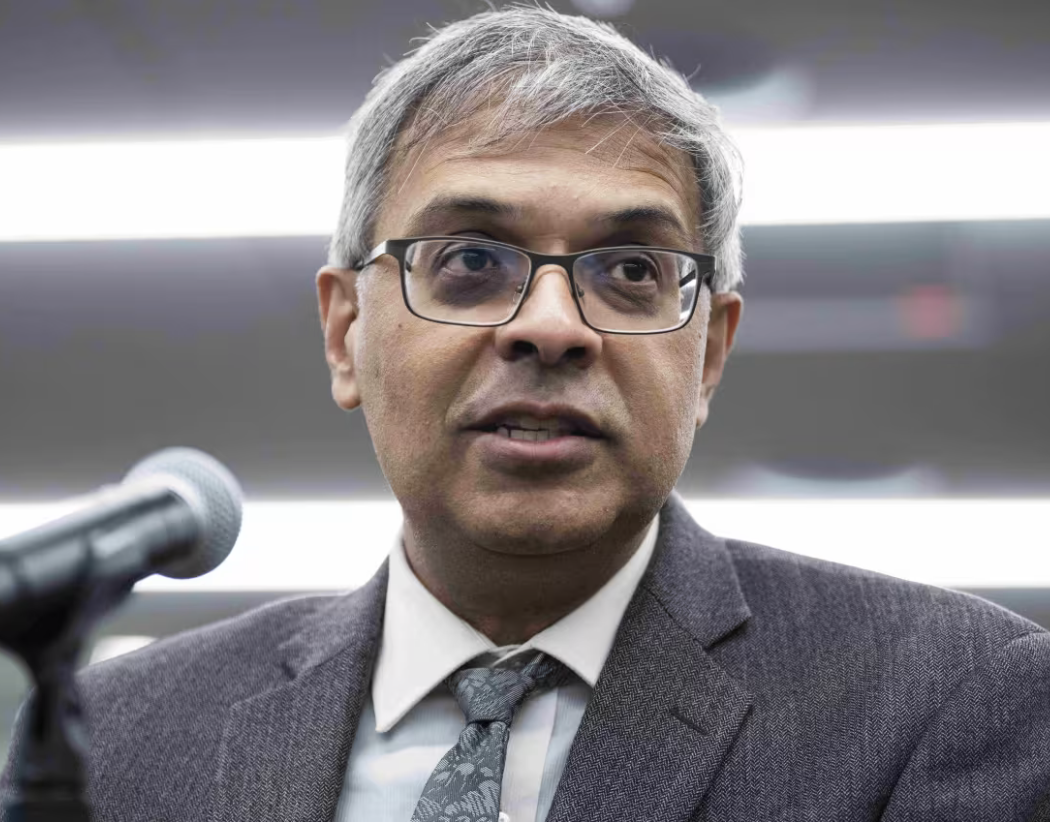By: Allysia Finley – wsj.com – December 1, 2024
His NIH nomination, years after being maligned for questioning lockdowns, is a boon for real science.
Francis Collins, the NIH chief between 2009-21, derided Dr. Bhattacharya as a “fringe” scientist for urging the government to focus on protecting the vulnerable while letting others go about their lives. Dr. Bhattacharya, Martin Kulldorff, then at Harvard, and Oxford’s Sunetra Gupta formally expounded this idea in the Great Barrington Declaration in October 2020.
It was far from fringe. Tens of thousands of doctors and scientists around the world signed the document. Before the Covid pandemic, the World Health Organization had opposed lockdowns to control disease outbreaks. Yet after the declaration’s publication, Dr. Collins urged a “quick and devastating published take down of its premises” in an email to Anthony Fauci.
In a Washington Post interview, Dr. Collins decried the declaration as a “fringe component of epidemiology.” “This is not mainstream science,” he added. “It’s dangerous” and “fits into the political views of certain parts of our confused political establishment.” Dr. Collins had it backward.
Lockdowns endangered democracy, the economy and children’s learning. The confused public-health establishment nonetheless embraced them. Mr. Trump initially went along but reversed course after Scott Atlas, a Covid adviser, arranged for Dr. Bhattacharya and other lockdown critics to educate Mr. Trump about the damage.
Mr. Trump proved more open-minded than the mainstream experts, who continue to insist that lockdowns and school closings saved lives despite the evidence to the contrary. Such small-minded zealots again showed their authoritarian side by pressuring social-media companies to suppress lockdown contrarians.
Twitter blacklisted Dr. Bhattacharya in 2021 after he tweeted an article he had written on age-based risks, noting that “mass testing is lockdown by stealth.” He was right. Many school districts later dropped their mandatory Covid testing policies because so many kids with mild or no symptoms were forced to stay home.
Dr. Bhattacharya didn’t deliberately court controversy. People who know him describe him as apolitical and unassuming. Over two decades in academia, he published dozens of wonky papers, such as “Provider visit frequency and vascular access interventions in hemodialysis” and “Heterogeneity in healthy aging.”
Two relate to the NIH and help explain the public-health establishment’s lockstep support for lockdowns. Scientists respond to incentives as much as anyone, and they have a strong incentive to follow public-health leaders if they want to advance professionally and win government grants.
In a 2018 working paper published by the National Bureau of Economic Research, Dr. Bhattacharya raised the question: “Does the NIH fund edge science?” The answer is yes, though less so than in the past. Dr. Bhattacharya found that the NIH increasingly funds researchers who seek to build on more-established ideas rather than those pursuing novel ones.
“The NIH appears to have become more conservative in its support for edge science over time,” the paper explained. Nobel Prize winner Katalin Karikó, who pioneered mRNA technology, said she struggled for years to win government grants to support her research, which was considered fringe until she arrived at a breakthrough two decades ago.
In a February 2020 paper, Dr. Bhattacharya analyzed why pharmaceutical advances are slowing. The phenomenon has been called Eroom’s law, a reverse spelling of Moore’s law, which observes an acceleration in computer-chip advancements over time.
Dr. Bhattacharya concluded that career incentives encouraged “me-too research.” Citations by other scientists “have become the dominant way to evaluate scientific contributions and scientists.” That in turn has shifted research “toward incremental science and away from exploratory projects that are more likely to fail, but which are the fuel for future breakthroughs.”
Might similar incentives explain conformist behavior during Covid? A young scientist without a secure job might have been reluctant to contradict Drs. Collins and Fauci, lest doing so jeopardize NIH funding for her research. Scientific journals rarely published Covid studies with conclusions that ran against the grain. Research echoing the public-health orthodoxy yielded more citations in the press and journals.
The pandemic is over, but liberal group-think in science continues on issues like climate and race thanks to the NIH’s support. Consider the NIH-funded “UnBIASED” study led by professors at the University of Washington and University of California, San Diego, which seeks to use machine learning to detect “hidden bias” in interactions between doctors and patients. Its stated goal is to develop tools to alert doctors of their unconscious racism, sexism and homophobia “to shift the balance of power toward more equitable health outcomes.”
Your tax dollars at work. Dr. Bhattacharya’s top charge at the NIH will be returning the agency to its original mission of funding innovation rather than political science masquerading as real science.
To see this article in its entirety and to subscribe to others like it, please choose to read more.
Source: Jay Bhattacharya and the Vindication of the ‘Fringe’ Scientists – WSJ
 Listen Online
Listen Online Watch Online
Watch Online Find a Station in Your Area
Find a Station in Your Area










 Listen Now
Listen Now Watch Online
Watch Online
